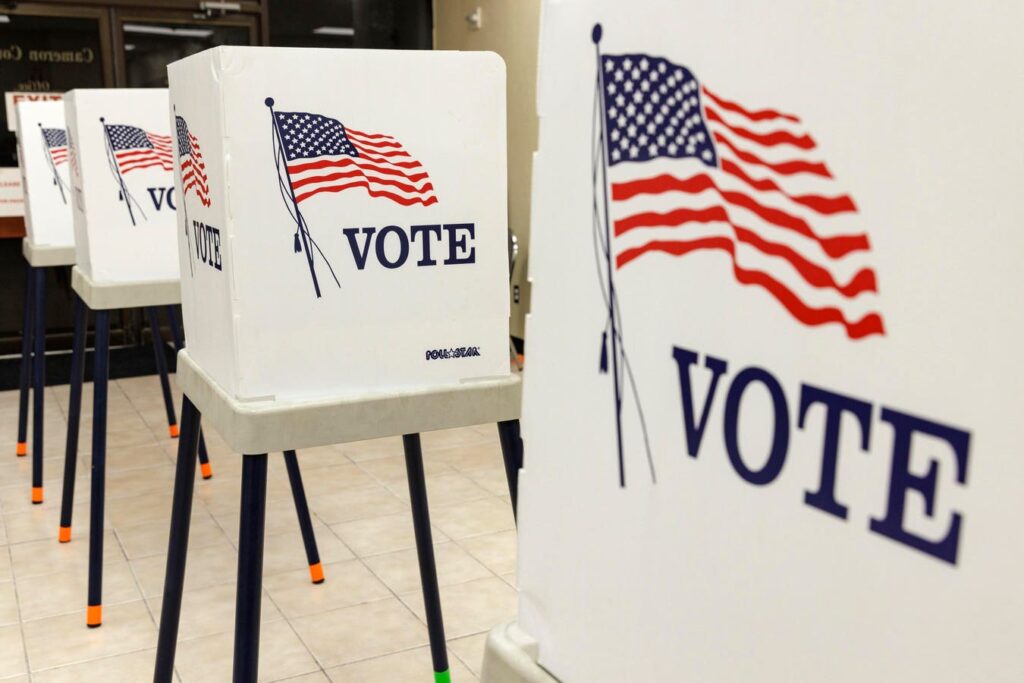As the United States prepares for a pivotal election, concerns have intensified over the role of artificial intelligence (AI) in the electoral process. Although discussions have primarily centered on the dangers of deep fakes and foreign interference, emerging issues such as misinformation and the influence of AI agents and bots on voter guidance are becoming more prominent. The New York Attorney General, James, has cautioned against depending on AI chatbots for accurate election information, warning of their potential to manipulate voter perceptions. Notable initiatives like an AI application created by Denver high school students to aid immigrants in the voting process exemplify the dual-edged nature of AI technology—capable of facilitating democratic participation while simultaneously introducing new risks. Government officials are increasingly sounding alarms over the unreliability of AI chatbots to address crucial voting questions, emphasizing the necessity for reliable election information as AI begins to play a significant role in a wide array of societal functions.
Simultaneously, the corporate world is witnessing a rapid expansion of AI agents, fundamentally altering workplace dynamics. Major corporations such as Microsoft, Cisco, and ServiceNow are investing heavily in autonomous AI systems, transitioning from basic customer service bots to sophisticated digital laborers able to handle complex responsibilities, including sales and accounting. While these advancements promise substantial efficiency and cost reductions, they also provoke important ethical, social, and legal questions about their implementation and impact. As these AI systems become more integrated into corporate structures, there’s a pressing need for businesses and lawmakers to consider the broader implications of this transformation, particularly with regard to potential job displacement and the erosion of consumer trust.
Many organizations are excited by the efficiency gains offered by AI technology. Companies like ServiceNow are already reaping substantial rewards from adopting AI agents, with subscription revenues soaring by 23%. Reports indicate that over 80% of HubSpot’s clients are rapidly recouping their investments in AI tools. However, this trend toward automation reflects not only economic incentives but also a philosophical shift away from human-centered service models. The risk arises from relegating human interaction to a “premium service,” creating barriers for less affluent consumers who may need assistance but cannot afford it, raising critical questions about accessibility and equity.
The shift toward an increasingly digital-only interaction model unveils hidden costs associated with AI and automation. As I discussed with Dr. Ori Freiman, while AI agents can streamline operations, the neglect of human oversight in emotionally sensitive situations poses a significant risk. Despite simulating human conversation patterns, AI agents lack genuine empathy and awareness of cultural contexts, producing a façade of connection that may prove inadequate for customers who may already face challenges with technology. For vulnerable populations, including the elderly and disabled, reliance on automated systems can lead to feelings of alienation, as they often encounter obstacles in accessing services and navigating automated responses designed without their needs in mind.
The ethical ramifications of AI’s integration into customer service are significant. AI systems often fall short in delivering the level of care and attention that consumer interactions necessitate, particularly in sectors where human touch is vital, such as healthcare and finance. Companies may tout AI’s abilities to mimic human-like engagement, but the reality may leave consumers feeling isolated and disillusioned. Policymaker scrutiny, led by agencies like the Federal Trade Commission (FTC) and the Consumer Financial Protection Bureau (CFPB), is essential to address these issues, ensuring that consumers maintain fair access to essential services and are safeguarded from potential inequalities that might arise from automation.
Finally, the implications of AI technology extend beyond corporate realms into the political landscape, where AI tools could be leveraged for voter targeting and campaign strategies. The algorithms that enhance operational efficiency can also manipulate voting behaviors through personalized messaging, raising serious privacy concerns. For example, multilingual AI chatbots designed to assist immigrants might unintentionally propagate misinformation, misguiding voters during critical decisions. Furthermore, as automation becomes the norm, it poses legal challenges regarding consumer rights and equitable access to human support. As regulations like the General Data Protection Regulation (GDPR) underscore, the necessity for transparency and human oversight in AI usage will become vital to maintain trust and equity in both commercial and electoral contexts.
In conclusion, while the advancements in AI present a promising future for efficiency and innovation, the push for automation must take careful consideration of the human elements intrinsic to consumer experiences and democratic processes. It’s crucial for policymakers, businesses, and advocates to collaborate and forge a balanced approach where AI enhancements complement rather than replace human interaction. By doing so, society can better ensure that the transformation toward a digital workforce benefits all consumers and safeguards the integrity of democratic participation in the age of AI.

